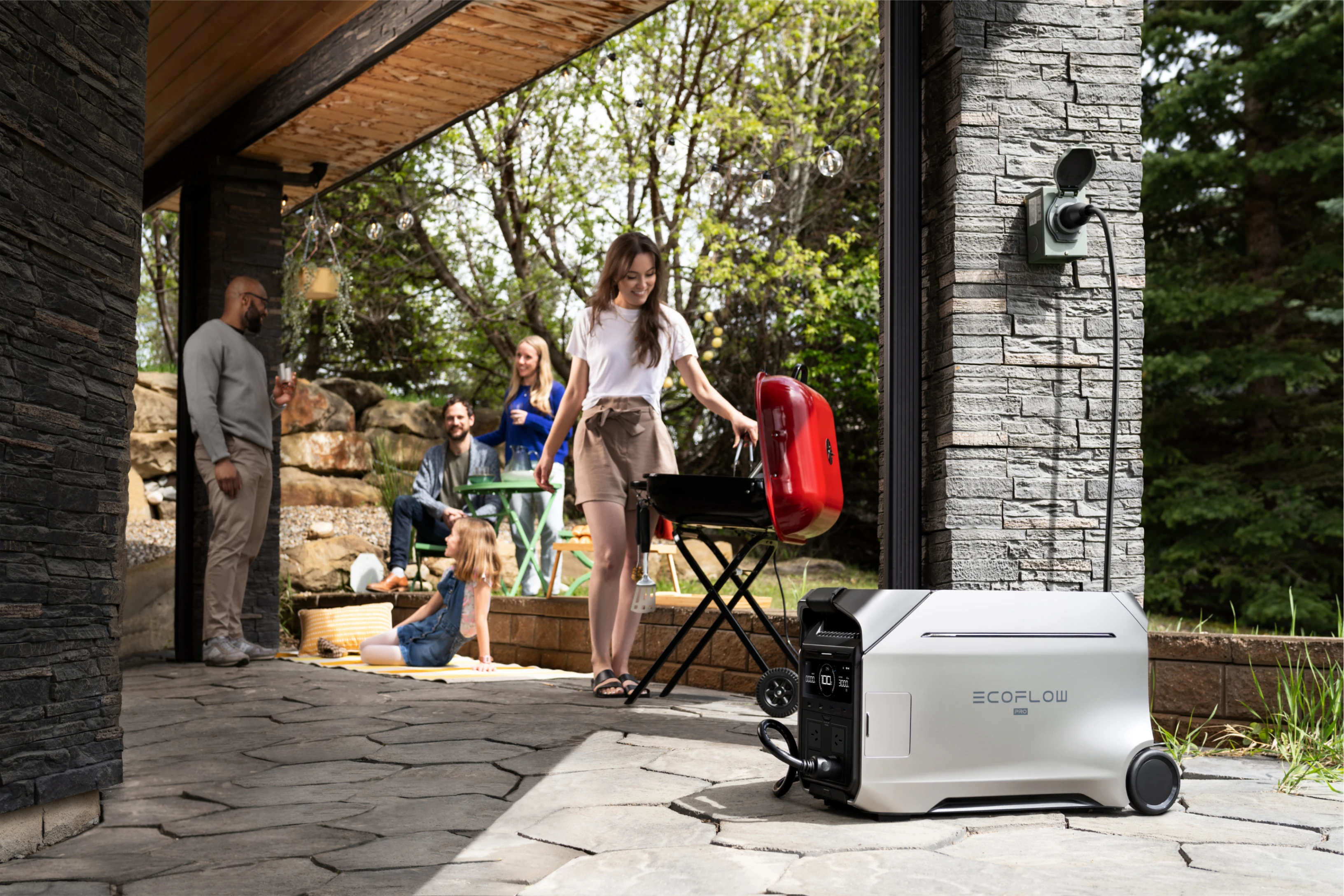Solar vs. Rechargeable Batteries: Key Differences Explained
- What Is Solar Battery?
- Benefits of Solar Batteries
- What Is Standard Rechargeable Battery?
- Key Differences Between Solar Batteries and Rechargeable Batteries
- How to Choose Between Solar Battery and Rechargeable Battery
- Finding the Best Battery Option for Your Home and Devices
- 3 FAQs About Rechargeable and Solar Batteries
Feature | Solar Batteries | Rechargeable Batteries |
Power Source | Solar panels | Power outlets or other sources |
Charging Time | 12 to 24 hours, depending on sunlight and climate | 2 to 6 hours, fast charging |
Best Use | Long-term energy storage for off-grid or solar systems | Short-term energy needs for portable devices (e.g., smartphones, laptops) |
Cost | Higher initial cost, but long-term savings on electricity bills | Lower initial cost, but requires frequent replacements |
Lifespan | Lasts around 20 years | Lasts 3 to 5 years, depending on usage frequency |
Maintenance | Minimal maintenance, can withstand outdoor conditions | Requires regular checks, proper storage and care |
Energy storage units are experiencing unprecedented growth, granting people and companies complete convenience in accessing energy from an array of sources. If you are considering battery storage, you will most likely be introduced to two main options: solar batteries and rechargeable batteries.
Although both serve the fundamental function of retaining energy for later consumption, they operate differently and offer an array of advantages in addition to some disadvantages. The following is an account detailing the fundamental dissimilarity between solar batteries and rechargeable batteries, aimed at helping you make the most knowledgeable choice suited to your requirements.
What Is Solar Battery?
Solar battery is an exquisitely made storage device created to store energy generated from solar panels. Stored energy proves priceless in situations when the sun is not visible, either hidden in the shadow or blocked behind clouds. Truthfully, solar energy installations would be imperfect without solar batteries because they provide an avenue to utilise solar energy even when the sun is not visible. Moreover, solar batteries are crucial in ensuring maximum utilisation of solar energy.
Types of Solar Batteries
There are several types of solar batteries, each with its distinct characteristics:
- Lead-acid Batteries: These are the oldest form of rechargeable battery, often used in solar applications for their reliability and affordability. However, they have a shorter lifespan and require regular maintenance.
- Lithium-ion Batteries: Known for their high energy density, longer lifespan, and low maintenance, lithium-ion batteries are the most commonly used in modern solar systems. They are more compact, efficient, and tend to last much longer than lead-acid batteries.
- Saltwater Batteries: A newer technology in the solar market, saltwater batteries use a saltwater electrolyte solution. They are environmentally friendly, safe, and can handle more charge-discharge cycles than lead-acid batteries.
Benefits of Solar Batteries
Solar batteries allow for energy independence by storing excess energy generated during the day and releasing it when needed. By doing so, they reduce reliance on the grid, saving on electricity costs. Additionally, they help in reducing environmental impact by utilizing renewable solar energy instead of fossil fuels. They are particularly valuable in locations where grid power is unreliable or unavailable.
What Is Standard Rechargeable Battery?
A rechargeable battery is made to hold and deliver electricity provided through an electric plug or solar power. The battery is installed in an array of electronic products such as cell phones, laptop PCs, cameras, and portable accessories. Nonreusable batteries are different in that their reuse is limited; on the other hand, rechargeable batteries can be reused indefinitely, which is a cheaper and greener option in the long run.
Types of Rechargeable Batteries
Rechargeable batteries come in several types, with the most common being:
- Nickel-cadmium (NiCd) Batteries: These batteries are known for their high energy density and are reliable over many charge-discharge cycles. However, they suffer from a "memory effect," which can reduce their lifespan.
- Nickel-metal hydride (NiMH) Batteries: These have a higher energy density than NiCd batteries and are more environmentally friendly because they do not contain toxic cadmium. They are widely used in household electronics.
- Lithium-ion (Li-ion) Batteries: Li-ion batteries offer the best performance in terms of energy density, longevity, and charge time. They are used in most modern gadgets such as smartphones, laptops, and electric vehicles due to their superior performance.
Benefits of Rechargeable Batteries
There are several positive things concerning rechargeable batteries. First, they assist in your purchasing fewer new batteries, thus conserving your cash as well as reducing garbage. It is easy to use rechargeable batteries, they are friendly to the environment, easy to obtain regardless of whatever your needs will be, as well as being available in most home electronics as a convenient means of power storage.
Key Differences Between Solar Batteries and Rechargeable Batteries
When it is time to decide between rechargeable and solar batteries, it is useful to have an idea of how they differ. Both have a place, and being aware of details will lead you to make a good decision.
Power Source
Solar batteries store energy generated by solar panels, which are able to catch sunlight. Solar energy is green and free, so solar power is an excellent option for energy. Rechargeable batteries, on the other hand, store electricity provided from elsewhere, such as a power outlet. Such batteries must receive their electricity from outlets or elsewhere.


Charging Time
Solar batteries often require a long charging time, between 12 and 24 hours, depending on the amount of sunshine. The amount of sunshine determines how much energy is generated, so the climate greatly impacts the battery's charge speed. Rechargeable batteries, on the other hand, charge fast, between 2 and 6 hours, depending on the battery and charger. Such batteries are designed for fast recharging, which makes them suitable for daily applications in products where quick charging is desired.
Best Use
Rechargeable batteries are most typical in portable electronic items such as cameras, smartphones, and laptops. The batteries are made for products that need to be reused very often, so the power is always available when required. Solar batteries, however, are battery packs that are charged using solar panels for later use when the sun is not visible, such as at nighttime or when it is cloudy. The solar batteries decrease the demand for electricity from the electricity grid. However, in regions where a good connection for electricity is not available or special kinds of electricity are required, normal solar batteries are not effective. Such regions can use portable storage systems for electricity such as EcoFlow DELTA 2 Max. Such systems can be driven by solar panels as well as offer stable electricity for most electronic appliances.
Cost
Solar batteries have a higher initial cost due to the materials used, such as lithium-ion technology, which is designed for long-term energy storage. However, the investment pays off over time through energy savings and reduced electricity bills. Rechargeable batteries, while generally more affordable upfront, require more frequent replacements over time. Though cheaper in the short term, rechargeable batteries may not be as cost-effective in the long run when factoring in the costs of continual replacements.
Lifespan
Another significant difference is how long they last. Solar batteries last between 5 to 15 years. That is why those who need to use less electricity from the grid but still need solar energy for an extended period are well-suited for solar batteries. Rechargeable batteries, on the other hand, last for 3-5 years, depending on how much they are reused. With time, rechargeable batteries do not hold electricity very well, and occasionally, they must be replaced in order to continue performing well.
Maintenance
Solar batteries require very little maintenance. They can withstand various weather and can be left outside without losing their function. They can be washed every six months to remove dirt or dust, which could render them less effective. Rechargeable batteries must be monitored frequently to ensure they function well. They must be stored in a mild place, not hot, not damp, and not fully charged, as such can reduce their lifespan. Period checks and proper storage are crucial in making them last longer.
How to Choose Between Solar Battery and Rechargeable Battery
When deciding between solar and rechargeable batteries, consider the following factors:
Energy Needs
- Solar Batteries: Best for those who need long-term energy storage and are looking to reduce their dependence on the grid. Solar batteries are ideal for off-grid applications, solar systems, and homes looking to maximize their solar energy potential.
- Rechargeable Batteries: Best for those who need portable energy storage for devices such as smartphones, laptops, and cameras. Rechargeable batteries are perfect for short-term, on-the-go energy needs.


Budget
- Solar Batteries: Solar batteries have a higher initial cost but offer savings on electricity bills over time. They are ideal for long-term investments.
- Rechargeable Batteries: Rechargeable batteries are cheaper upfront but require frequent replacements, which can add up over time.
Usage
- Solar Batteries: Perfect for homes with solar systems or people looking for off-grid energy storage solutions.
- Rechargeable Batteries: Ideal for powering portable devices and electronics.
Finding the Best Battery Option for Your Home and Devices
In short, if you're looking for a sustainable long-term energy solution, solar batteries are a great option; if you need convenient short-term power, rechargeable batteries will be a better fit. The key to making the right choice is to align it with your specific needs.
3 FAQs About Rechargeable and Solar Batteries
Q1: Is a Rechargeable Battery Suitable for Emergency Backup Power?
The rechargeable battery is a good supplier of backup emergency power; they do, on occasion, need supplemental storage facilities in order to provide a consistent supply of energy. They are, for example, usually utilized to provide temporary power assistance for compact units or simple electronic instruments.
Q2: Do solar batteries work well in hot weather?
Solar batteries withstand heat impacts, mostly when the temperature is near or even higher than the device's rated operating range. Even though such batteries are usually designed to withstand all sorts of temperature extremes, even long-term exposure to high heat can impact both their performance and lifespan negatively.
Q3: How do solar batteries contribute to obtaining energy independence?
Solar batteries are an important component for energy independence as a storage means for solar energy. Differing from conventional forms of energy that depend on the grid, solar batteries store and reserve unused solar energy for points in time when the sun dips or in cases of electrical failure. The function allows residential and commercial businesses to operate independently from external energy, which allows for a reliable supply without depending on the grid.